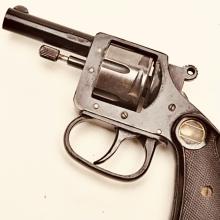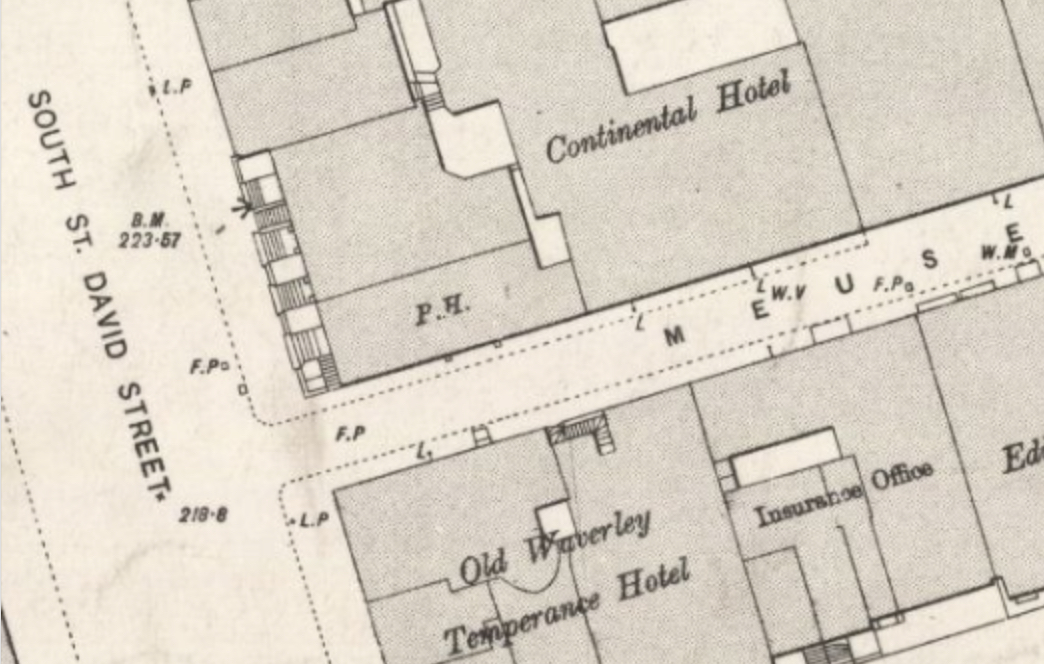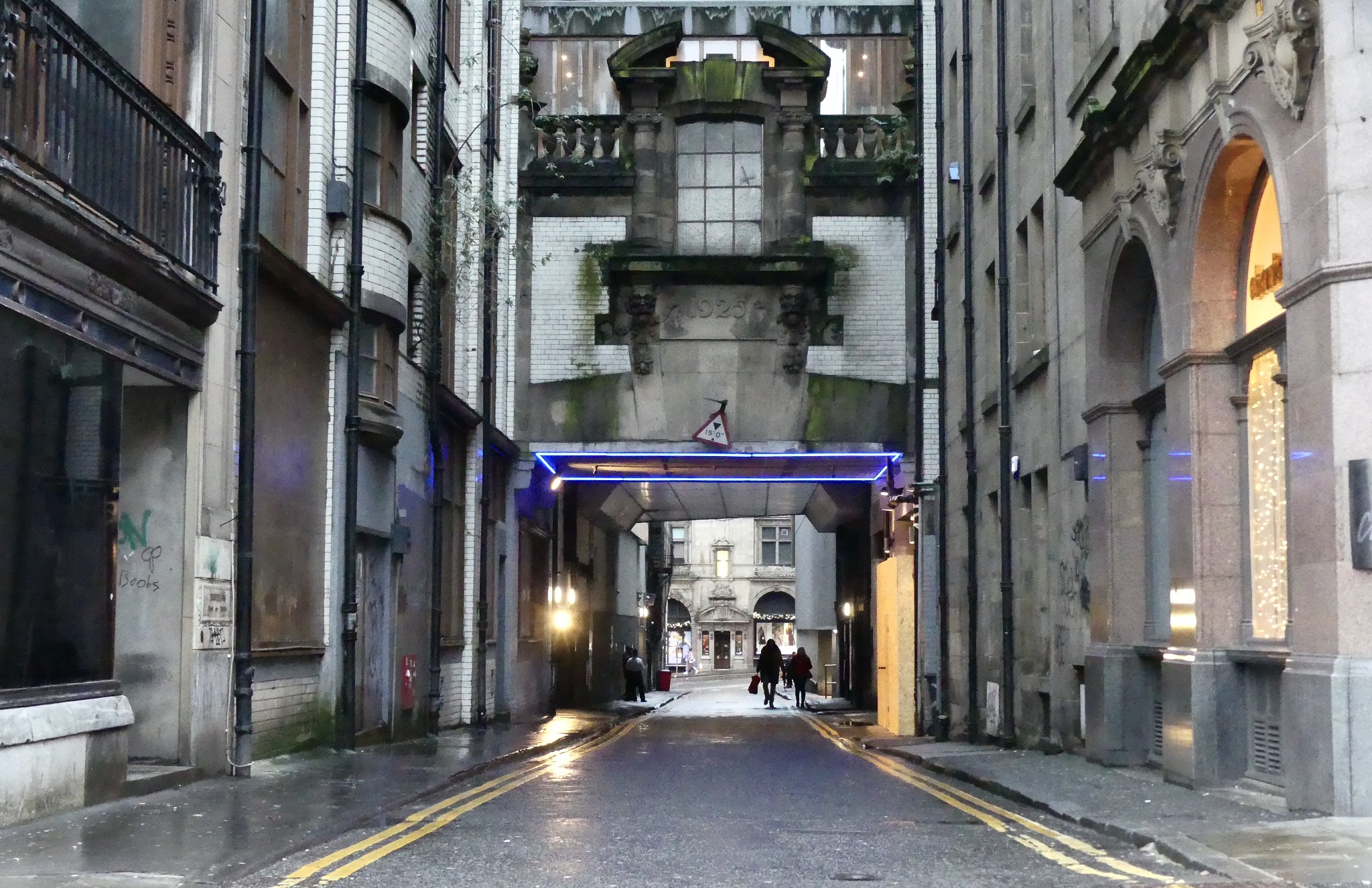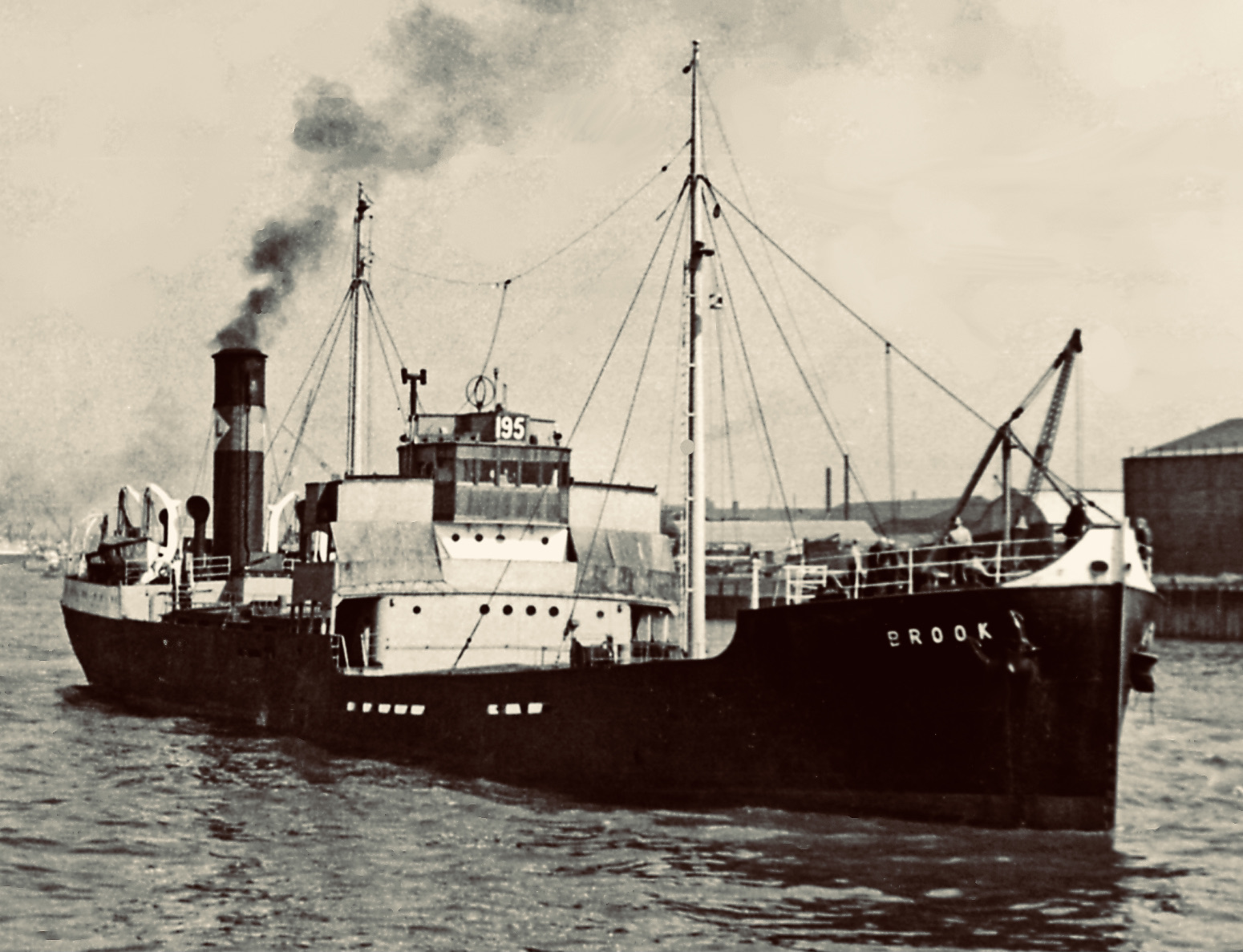
TRAGIC DEATH IN AN EDINBURGH HOTEL.
BARMAID SHOT DEAD.
A melancholy addition was made last night to the victims of reckless fooling with firearms. Between seven and eight o’clock in the evening a seafaring man, named Richard Francis Johnstone, paid a visit to the bar of the Continental Hotel, Meuse Lane, Edinburgh.
Some time later it is said that he produced a small revolver, which he exhibited to a couple of barmaids. He then directed the revolver towards the fireplace and pulled the trigger. There was a loud report, and a cloud of dust rose from the ashes in the grate. The weapon was presumably taken by those present to be a toy one, and, although the visitor was ordered to desist, it does not appear that his action created any alarm.
One of the barmaids, named Agnes Lumsden, who was about 22 years of age, evinced some curiosity in the revolver, and asked to be allowed to examine it. Johnstone handed over the weapon, and Miss Lumsden, pointing it towards the wall, endeavoured twice without success to discharge it. The explanation of her failure was subsequently ascertained to be that the cartridges were so large in the head as to prevent the proper revolution of the magazine after each shot.
The girl, who, like those who stood around, apparently believed that the revolver was empty, jocularly pointed it at her own head with the remark, “What an awful thing it must be for people to take their own lives.” No sooner had she spoken than a loud report reverberated through the premises, and Miss Lumsden fell without a moan to the floor. The spectators rushed in consternation to raise her from the ground, but she was quite dead—shot through the right temple.[1]

Dr. A. T. Sloan, 22 Abercromby Place, and Sir Henry Littlejohn, who were early upon the scene, certified that the poor girl had died instantaneously from a bullet wound to the brain. Miss Lumsden is said to hail from Kirkcaldy, where her parents reside. She was a bright, intelligent girl, with an engaging manner, and had been employed in the Continental Hotel since April last.[2]
The tragic news was conveyed to the parents of the unfortunate girl last night by letter, and their arrival was expected in the city this forenoon. Miss Lumsden was spoken of very highly by all connected with the hotel, and the affair has naturally caused the greatest consternation.
THE ANTECEDENTS OF JOHNSTONE.
It is somewhat difficult to learn accurately of the antecedents of the man Johnstone, further than that he was a seafaring man and said to have been frequenting the Hotel since the time of the Musselburgh races.
It appears that Johnstone was in the service of a shipping company with vessels plying between Leith and Hamburg, but whether he had been in steady employment or had been out of a berth for some time is not known.
There were few people in the bar at the time, and the first rumours which reached the outside public were naturally greatly exaggerated, and an idea got abroad that murder had been committed. The police were communicated with by telephone, and Lieutenant Moodie and Detectives Craib and Macpherson at once proceeded to the scene of the tragedy. When they arrived, however, all trace of the occurrence in the bar had disappeared, the body having by this time been removed to a private ante-room, and there deposited on the floor.
One of the other two men then standing at the bar had by this time assumed charge of Johnstone, and he, too, was in the room. The revolver, which was a six-chambered one, having been taken possession of, but Johnstone betrayed no anxiety and calmly waited the arrival of the police, when he was taken charge of and conveyed to Central Station, where he was formerly charged with the reckless discharge of firearms.

THE LATEST PARTICULARS.
Lieutenant Moodie and Detective Craib are actively pursuing their investigation into the sad affair, but there is little more light to be thrown upon it.
The revolver, which is of the cheap variety, was closely examined this morning, and the chamber found to be so completely jammed that it was impossible for some time to ascertain either how many cartridges it contained, or whether any were loaded or not. Consequently considerable caution had to be exercised, but the efforts to work it loose were ultimately successful, and then it was discovered that only two chambers had contained cartridges, and both of these had been discharged.
A box of cartridges, bearing the name of a London firm, and corresponding to those found in the revolver, were in Johnstone’s possession when he was searched, but accused made no statement either as to these or the revolver. As a matter of fact, he gave no explanation, and there being some doubt as to the state of his mind he was examined by Sir Henry Littlejohn prior to his appearance at Police Court to-day.
Miss Lumsden was very popular among the frequenters of the Continental Hotel, and is said to have been engaged to be married.
Edinburgh Evening News, 20 November 1902
[1] The time of death was 7.15 pm, and the cause: ‘Pistol shot wound of brain, accidental’ (Deaths 685/2 66).
[2] Agnes Lumsden was born on 6.8.78 at Blebo Craigs, Fife; the daughter of Thomas Lumsden, journeyman tailor, and Elisabeth Lumsden née Gordon (Births 433/ 15). The 1901 Census (held on 31 March), listed her as a housemaid at 77 Grovesnor Crescent, Edinburgh. She was one of 4 domestic staff serving in the household of a wealthy 74-year-old widow, Christina Edington (Census 685/1 6/ 18). On 29.11.02, SAC reported that, ‘The interment of Miss Agnes Lumsden, the victim of the Edinburgh tragedy, took place on Sunday afternoon in Kirkcaldy Cemetery. The funeral was a public one, and was largely attended. The Rev. Mr Gardyne, St Peter’s E. P. Church, conducted a short service at the house of the parents, and also at the grave.’ Her parents lived at 29 Bridge Street. Agnes was 24 not 22 years old. Images: Public domain; Ordnance Survey, reproduced by permission of the National Library of Scotland; Wikipedia, Creative Commons.
*****
THE EDINBURGH HOTEL TRAGEDY.

Few further particulars have come to light regarding the sad tragedy in the Continental Hotel, Meuse Lane, on Wednesday, when Miss Lumsden, barmaid, accidentally shot herself dead.
The father and sister of the unfortunate girl arrived in Edinburgh yesterday, and the body was removed last night to Kirkcaldy, where it will be interred.
The police are still searching for the two men who are supposed to have been in the bar when the first shot was fired.
The man Johnstone, who is in custody, will be brought before the police court to-morrow, when it is expected that Sir Henry Littlejohn will be able to certify definitely as to the state of his mind. There seems little doubt, however, that the man is in possession of all his senses, but his mind, it seems, regarding events and occurrences in his past history, is a blank.
It would appear that he came to the city in October last, and has since that date been living in lodging-houses. He can remember, however, that he had sailed from London, but otherwise can give little information regarding his stewardship at sea.
In the cells he maintained a calm demeanour, although at one interview with the police medical officer he gave way to tears. He was yesterday in cells allowed to peruse the evening papers.
Edinburgh Evening News, 21 November 1902
*****
THE EDINBURGH HOTEL TRAGEDY.

Before Sheriff Edinburgh City Police Court to-day, Richard Francis Johnstone (29), seaman, was again brought up on remand charged with reckless discharge of firearms in the Continental Hotel, Meuse Lane, on Wednesday night. Sir Henry asked for another delay until Monday, as he wished to enquire further into the accused’s mental condition. The adjournment was granted, and Johnstone was taken back to the cells.
All efforts to elicit from him information regarding himself have been unsuccessful. On several occasions Sir Henry has questioned him, but Johnstone either is unable to recall any of his past history, or else, for some reason or other, he declines to say anything about himself. His case, indeed, is one of the most mysterious the police have had in hand for some time.[3]
Edinburgh Evening News, 22 November 1902
[3] Image: Wikimedia, Creative Commons.
*****
THE EDINBURGH HOTEL TRAGEDY.—Before Sheriff Henderson, in Edinburgh Police Court yesterday, the man who is in custody in connection with the Continental Hotel tragedy was again charged with reckless discharge of firearms.
He had been twice remanded in order that the medical officer might inquire into his mental condition. Sir Henry Littlejohn yesterday stated that that the accused had practically recovered and was quite able to plead. At first he was in quite a dazed condition, and as a result, Sir Henry thought it advisable to have him under his care. The Clerk of the Court said the accused would be remitted to another Court. The Fiscal—Unless your Lordship does not think it worthwhile to remit him. Sir Henry Littlejohn—I don’t think so. The Sheriff said he thought nothing of the charge, but thought it perfectly competent that he will be brought up at the Burgh Court.
On the charge-sheet in the Police Court the accused was named Richard Frances Johnstone. This was the name he gave when taken into custody. When questioned as to his relatives and previous history he gave very scrappy information. He said he had been a seafaring man but regarding his relatives he maintained for a long time a stolid reticence. It was learned yesterday, however, that his real name was Robert Ponton, and that he had been employed as an accountant’s clerk in Edinburgh, and resided at Millar Crescent.[4]
Scotsman, 25 November 1902
[4] It seems likely to this compiler that Ponton had initially disguised his identity in order to impress the barmaids and avoid being identified; and that he had later feigned partial amnesia in the hope of escaping public embarrassment. Littlejohn seems to have given him the benefit of the doubt rather than lay him open to some charge of obstruction. It seems odd to the modern reader that Ponton was not at least charged with having the revolver. However, it was not until 1918 that Sir Ernley Blackwell, in a report of the Committee on the Control of Firearms, recommended legislation for ‘the possession, manufacture, sale and import and export of firearms and ammunition …’. The Firearms Act followed in 1920.
*****

THE EDINBURGH HOTEL TRAGEDY.—The accused man, Robert Ponton, was yesterday liberated.
He had been remitted from the Police Court on a charge of reckless discharge of firearms. He was expected to appear at the Burgh Court yesterday, but as Mr Somerville, the Procurator-Fiscal considered that there was practically no charge against Ponton, he dropped the case.
About midday Ponton was taken before the Fiscal, to whom he gave a statement, after which he was set at liberty.[5]
Scotsman, 26 November 1902
[5] Ponton was born on 30.7.73 at 8 Whitehouse Terrace in Morningside, the son of Alexander Ponton, gardener and domestic servant, and Christina Ponton, née Gibson (Births 685/5 861). In the 1901 Census he appears (27, accountant’s clerk) nearby at 29 Millar Crescent, living with: his mother (54, cook and head of the household); sisters Agnes (29, waitress), Christina (20, milliner’s assistant); and brother Alexander (15, upholsterer’s assistant) (Census 685/5 150/ 6). By the time of the 1911 Census, he was an accountant living at 39 Beresford Rd, Islington, London. A life of quiet respectability beckoned. But the unseen spectre hanging over all young men in these newspaper articles was the First World War. Later resident in Bradford, Yorkshire, Edinburgh-born Robert Gibson Ponton enlisted in the 9th Batallion Black Watch (Royal Highlanders). If he lied about his age to get in, he may have added his mother’s maiden name (Gibson) to cover his tracks. With the rank of private (S/12429), he died of wounds in France/Flanders on 28.6.16, aged 42 (Service Returns, Deaths 142/AF 74). He is buried in Bethune Town Cemetery (V. E. 92), Pas de Calais, France.



